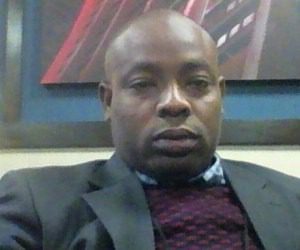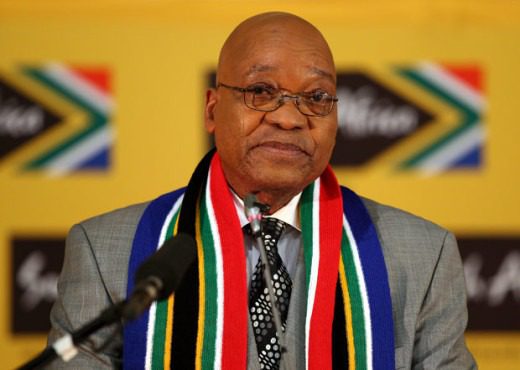National Issues
Farmer-Herder Crises: Mediating Security, Ethnicity and Religion -By Philip Olayoku


Philip Olayoku
The controversy on whether the Fulani herdsmen should be categorised as terrorists or not resonates the intricate contradictions within Nigeria’s security sector. This has become characterised with the increase in distrust of security agents by the citizenry, especially the Nigerian military – whose growing presence in internal security interventions continuously questions the competence of the Nigeria Police Force. This challenge was reiterated almost a year ago (in June 2017) by the commissioner for local government and chieftaincy affairs in Kaduna State, Alhaji Jafaru Sanni. He had maintained the need to restore the confidence of the Southern Kaduna people in their safety and security, before disarming them during a Nigerian Stability and Reconciliation Programme’s (NSRP) peace and reconciliation workshop held in the State. The indication of this is that insecurity stands out as one of the major root causes of the incessant clashes between farmers and herders in that part of the country. There could be no better suggestive evidence in this regard than the recent statement credited to General Theophilus Danjuma, a former chief of army staff, which sounded like a call to arms among Nigerians, as he alleged the connivance of the military with Fulani assailants. While the roles and legacies of this retired general – and those of his generation – in Nigeria’s current divisive context must await the judgment of posterity, it remains saddening that they have remained the reference points for determining the trends of major issues of national interest in present day Nigeria.
The need to specifically focus on the North-Central region, however, derives from my study of the newspaper reportage of the farmer-herder crises between 2006 and 2014, which reveals that the region accounted for about 74.8 percent of the 111 incidents that occured. 83 of the incidents reportedly took place in Benue, Kaduna, Plateau, Kogi, Niger, and Nasarawa States, with Benue recording the highest number of occurrences. What was quite revealing in the study was that the crises had defied spatio-temporal limitations, as it took place all year round across the different geopolitical zones in the country, thus debunking the assumption that climate change was the most fundamental root cause of the crises. What is more, the current government has been hugely criticised for its slow (if at all) response to the atrocities attributed to the Fulani herdsmen, a group the International Crisis Group categorised to be as deadly as the Boko Haram in its September 2017 report, thus, corroborating the 2015 report of the Global Terrorism Index that the group was the fourth most deadly terrorist group in the world. This categorisation has also led to several calls from different quarters that the Fulani group should be categorised as terrorists. On the flip side, some scholars contend that such categorisation of the Fulani herders does not objectively consider the reality of the group as an ‘endangered specie’ with a legitimate need to bear arms in defence of themselves against armed bandits and armed non-Fulani local community members. As a matter of fact, the recent news from Dapchi that some Fulani herdsmen were responsible for the return of the missing school children who had escaped into the bush while Boko Haram struck, lays credence to the fact that stereotypical categorisations of groups are more often than not unjustified.
The issues become more complicated if one considers the socioeconomic undertones of the crises as each group lays claim to the legitimacy of protecting its asset, as the land is to the farmers, what the cattle is to the herdsmen. However, it appears that political solutions, both at the federal and local levels have been ineffective with conspiracy theorists alleging the complicity of political leaders in initiating the crises. My interactions with members of the Benue extractions (both Tiv and others) have unravelled that the prevalence of the crises in Tivland is also connected with the illegitimate sale of land to the Fulani by Tiv leaders, without the consent of the indigenous landowners. On the broader spectrum, the ethno-religious affiliation and pastoralist identities of President Buhari have often be adduced as reasons behind his seeming neutrality in the crises, especially before he embarked on a tour of the crises ridden states of Benue, Yobe, Taraba and Zamfara in March. In what many interpreted as an indicting confession, the claim by President Buhari that he was not aware that the inspector general of police – who had been ordered to relocate and restore normalcy to Benue State – had since moved on from the instruction, betrays the absence of synergy and prioritisation in adressing the crises by the present administration. One would have thought that the level of carnage that has attended clashes between the nomadic Fulani would have by now resulted in a national blueprint for mitigating the crises. However, what is prominent are isolated legislations in states like Ekiti and Benue, which have become more problematic than being sustainable solutions. Again, these isolated attempts reflect the lack of mistrust in the central government’s ability to tackle the menace, which could also be related to the above referenced call to arms by the retired general from Taraba. The government has instead maintained its resolve to continue the militarisation of the State, with the Nigerian arm announcing a two-month extension of Operation Ayem Akpatuma in Benue State.
While the political and socioeconomic indices have dictated the content of discussions on the farmer-herder crises in Nigeria, the fundamental and perennial underlining issue of ethno-religious division in the North-Central part of the country has often been relegated to the background. Initially, there have been denials of the Nigerian nationality of the Fulani perpetrators of the mayhem, with claims that those who perpetrate the crimes apply guerrilla tactics by invading communities to carry out sporadic attacks and escape via apian routes along the Sahel. While these narratives were prevalent during my interactions with residents in Plateau State, the same could not be said to apply to attacks in other regions of the country such as the South-East and the South-West. For instance, my lived experiences within the Atisbo and Itesiwaju local governments of Oyo State reveal that Fulani groups have become native to communities within the local governments and this fact does not preclude fatal clashes between them and the farmers in the areas. While the clashes have been going on for a while now, they are yet to garner sufficient attention of the state government whose attention has been focused on securing more of the urban settings.
Within the north-central itself, my field research in Zangon Kataf during 2012 indicated that the Fulani preferred to live with the Atyap than associate with the Hausa, except during the Friday prayers, although the context seems to have been transformed five years on as shown in the nature of the recent clashes in Southern Kaduna. One reason that could be referenced in explaining the transformed scenario is that, as has been characteristic of the North-Central region, the primacy of religious identity over ethnic ones holds sway; unlike its reverse in the South-Western part of the country. This may not be unconnected with the colonial heritage of the Emirate indirect rule system, which implied ethnicide for several groups with a devaluation of their languages and other cultural elements. Thus, it has become easier to identify as either Christian or Moslem, more especially with divisive and fraudulent binary nomenclatures of Hausa/Fulani Muslims and non-Hausa/Fulani Christians.
For many who experienced the immediate post independent period, the concept of ‘One North’ as propagated by the Sarduana, Alhaji Ahmadu Bello, has since lost its meaning, especially when one considers the developmental dichotomy in different areas of Northern Nigeria. Little wonder then that the North-Central zone exists in the paradox of the laying down of arms as facilitated by the Kaduna State government (though its sustainability remains to be tested) on the one hand, and the call to arms in Taraba by an individual who was trained to defend the unity and sovereignty of the country on the other. The divisive context has not been helped by the gradual loss of credibility of the incumbent administration with contradictory statements of victory over and ongoing negotiation with Boko Haram, amidst the ongoing attacks in the north-east. As the elections in 2019 approaches, the President’s media team has embarked on the projection of the administration’s achievements as it seeks the validation of Nigerians in the bid to return for a second term. On the contrary, the farmer-herder clashes remain an Achilles heel with the continuous criticism of its ineffective response in devising solutions.
It must be noted that the crises resulting from cattle grazing are not peculiar to Nigeria as there have been related challenges in some other parts of West Africa, with Ghana as a notable example. Even so, the global media had beamed more search light on the Nigerian scenario due to the high level of fatality which appears to continue unabated. While the government must look beyond 2019 in finding sustainable solutions to the menace, it must genuinely explore the option of bridging the ethno-religious divide that drives the mobilisation of support amongst the different factional groups. In other words, no matter the amount of grazing routes or ranches created to make the herders sedentary, the fundamental root cause of opposing ethnoreligious identity will ensure that the crises continue to sprout unless it is subsumed under the primacy of belongingness hinged on Nigerian citizenship.
Philip Ademola Olayoku is a senior research fellow of the French Institute for Research in Africa (IFRA-Nigeria).




















